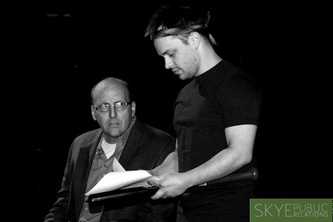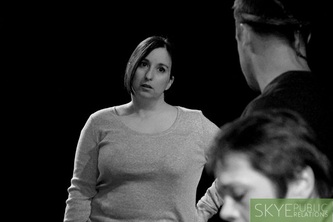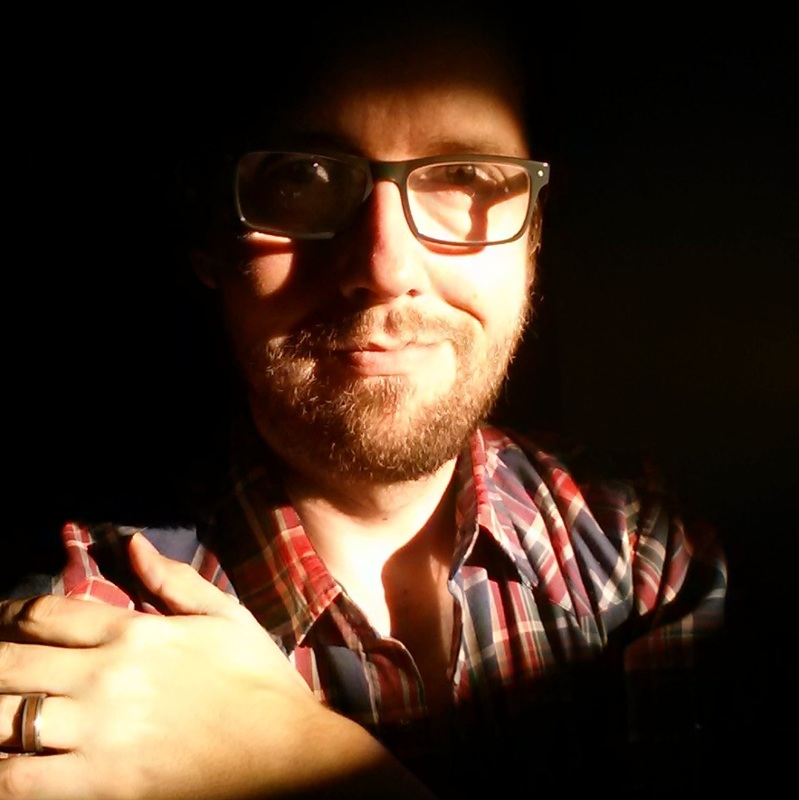|
This past week, my colleague Mark Chrisler brought this to my attention. Aside from the fact that it involves one of my favorite video games from my youth (Mega Man and all his glory), it has some fascinating stuff to say about how we learn from watching action in a narrative. The video itself is about 20 minutes and worth your time. It breaks down the pros and cons of video game design and chiefly tackles the idea of conveyance -- a system for teaching the player how to play through gameplay instead of instruction manuals or training levels (as is popular in video games today). As you'll see in the breakdown, Mega Man was fantastic in that it didn't tell you how to play -- you figured out the rules of the world simply by living in it and taking action. With that in mind, I am now paying more attention to plays, TV, film (pretty much any narrative structure) to see if the rules of the world are shown to me by characters taking action and learning or through exposition. That's what I equate instruction manuals to, exposition. That clunky, painful, and (falsely) believed important addition to every play, TV show, and movie you've ever seen. If we can teach audiences the rules of a video game through playing the game (i.e. action), then why can't we teach audience the rules of our plays the same way? Show, don't tell. Isn't that what we're taught. And yet I'm as guilty as the next writer for smearing exposition throughout a play (especially at the outset) so I can make sure everyone is understanding how the world works. Thinking about exposition as the detriment to conveyance has been quite helpful. When ever a character begins to explain anything to anyone, I stop and try to figure out if there is a way for that character to take action and let those actions speak volumes. An example of this happened in AMC's The Walking Dead a couple weeks ago. Without giving away any spoilers, I'll just say that a character needed to lure a zombie over, so he cut his finger and the zombie smelled the blood, wandered close and then stuff happened... the point here is that there were two characters in the scene and the one with the idea didn't stop and explain it. No words were really said. He didn't tell us what he was doing. He took action. That created a reaction. The story continued. Later in the episode, when that other character found himself in a sticky situation, he pulled out a knife and (again, without saying a word) we knew what he had to do. We, the audience, understood a new rule in the world -- all done with action rather than exposition. Sit back and watch the Mega Man breakdown and let me know your thoughts. Does conveyance work on stage, etc.? How would you use it? Are you already doing this? Is there such a thing as "good exposition?" Be warned, the video has some swearing, so it's probably NSFW if you're not wearing headphones (not too mention it's about Mega Man and clearly looks nothing like work unless you're lucky enough to work in a creative field where watching stuff like this is encouraged and rewarded -- and if so, good on you). That was the quote from my Managing Director when introducing my 48-hour play at the dress for CAUGHT IN THE ACT...AGAIN! at Theatre Daedalus last weekend. It might be true, but it still tickled me a bit because it wasn't what I had expected. But then, neither was the weekend. First, as promised, we'll talk about zombies. When I mentioned this in my last posting, it was more in an effort to broach the topic of the wonderful AMC show, The Walking Dead. And we'll get to that... eventually... but I want to touch briefly on a weekend of new theatre that happened at Daedalus where I just happened to write (in a sinfully short amount of time) a 10-minute play about survival in a zombie apocalypse. This play, called SOMETHING BEAUTIFUL, was one of six productions that were done as staged readings for last weekend's Daedalus benefit show. Thanks to these beautiful shots by Skye Public Relations (courtesy of Theatre Daedalus), you can catch a glimpse of this new short play of mine. I've been tossing around the idea of writing a zombie apocalypse play since last May when I was in Alaska. Maybe it was the remoteness of Valdez, or the weeks of playing Left4Dead that preceded that particular trip, but whatever the muse, the spark ignited that weekend and has been smoldering in my brain ever since. I did not, at all, plan to write this for the festival. "Like anything worth writing," as Kay Eiffel (played by the delightful Emma Thompson) says in Stranger Than Fiction, "it came inexplicably and without method." And now, it's inside me.
It's pulling at parts of my synapses, pushing against the insides of my fingertips trying to force its way into a deeper and lengthier version of itself. And, honestly, that's fine with me. I loved it. Do love it. The characters were rich and delicious in my head and while they only got out to play for ten minuscule moments, they left a mark. For me at least. It helps that I had some terrific actors who embraced the tough emotions I sent their way. Can't be easy to go from zero to gut-wrenching-kick-you-in-the-crotch-heartbroken in six minutes flat. But they did. They went there. And I knew that this play was just the beginning. Something bigger, something... bloodier. More intimate though. About people, humanity, and all that stuff that comes with facing down death in the aftermath of life. That's what I love about these quick play festivals and writing prompts (from 48-hour fests like this to my weekly Madness plays at school): they give me fodder. They give me flashes of inspiration that either teach me something about my writing or pave the path to a larger creative world. Sometimes, I have a play just sitting around in my brain, waiting. And sometimes, one of those plays pulls out a baseball bat and smashes through. That, is pretty frakking exciting. That's about all I'm gonna say on this play. Working on this new thing where I don't talk out my plays. I write them out. Neat trick, right? I thought so. Speaking of writing out a play.... I think THE FACE OF CONTRITION needs my attention. We're 13 days from my next workshop reading. Lots to do in 13 days. Lots. Maybe it's the kickstart of Daylight Savings Time, or maybe it's the Coca-Cola from Mexico I had earlier, but either way you swing it, I'm up WAY past any semblance of a bedtime. Which isn't bothersome (it will be tomorrow when I'm trying to get work done I should have been doing already), and happily allowed me to be online, on Twitter, to see Zachary Quinto post the phrase "9 plays in 7 days" in this tweet. And that got my brain churning over next quarter's play fest here at OU. I'll do ya a few better, Mr. Quinto. Twelve plays in four days. A mix of readings, stagings, and studio productions from the Graduate playwrights of Ohio University's professional playwriting program. It seems a world away at this point, as I hunker down for five intense days of project deadlines and finals, but the Seabury Quinn, Jr. Playwrights Festival will be upon us soon and I'm stoked about it.
So stoked that I will bid thee good night so that I might slumber a bit before getting up to work on more revisions of my new draft. More on THE FACE OF CONTRITION later --- for now, I need to write it out, lest I talk it out. Oh, and next time, let's talk about zombies. Not even kidding. |
Jeremy's blog
Thoughts. From my brain. Anything to do with how we tell stories and the stories we tell each other. Literally and figuratively. About JeremyWriter. Husband. Father. Effulgent dreamer. A Fightin' Irishman (@NDdotEDU '01). A playwriting Bobcat (MFA in Playwriting, @OhioU '13). I write plays. I'm a geek. I wanted to be an astronaut. I go places in my head.
Categories
All
Archives
January 2022
|





 RSS Feed
RSS Feed
